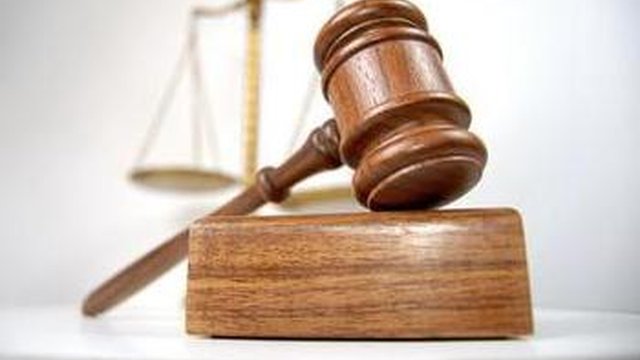UK Supreme Court sends $3 bln eurobonds case between Ukraine and Russia to full public trial, Ukraine considers it victory

The Supreme Court of the UK has ruled in a case on the recovery of Ukraine's debt on bonds with a nominal value of $3 billion, which was denied to a company representing the interests of Russia in making a summary judgement in the case, the court said on Twitter on Wednesday.
"In a great victory for justice and the rule of law, the UK Supreme Court has today held that Ukraine's defence of duress, based on russia's threats of aggression against Ukraine, should be sent for a full public trial," the Finance Ministry of Ukraine said in a statement on Wednesday.
The ministry said that more than seven years after russia commenced proceedings against Ukraine in England, this decision issued by the highest court in the UK vindicates Ukraine's long-held position.
The ministry recalled that russia, acting through its proxy trustee, sought to persuade the English court to enter summary judgment against Ukraine without permitting its own conduct to be scrutinised. But the Supreme Court has rejected russia's pleas and recognised the legitimacy of Ukraine's defence.
But, in the end, the Supreme Court rejected russia's request and rightly recognized that the arguments of the Ukrainian defense line on duress can and should be properly examined with an examination of all evidence, the Finance Ministry said.
The initial claim was filed on February 17, 2016 with the High Court of Justice of England and Wales, which on March 29, 2017 approved a summary judgment against Ukraine, effectively rejecting Ukraine's main objections and agreeing that it had obligations under eurobonds. By its decision, the court ordered Ukraine to pay Russia the nominal value of eurobonds for $3 billion, the outstanding coupon payment for $75 million, as well as penalty interest of $674,000 accrued for each day of delay, and part of the costs of the proceedings.
However, the court immediately granted Ukraine the right to appeal this judgment, and the appellate court ruled that the court of first instance should consider the case at trial. During the hearings, the Ukrainian side proposed to consider the case in the UN International Court of Justice (ICJ), but the Russian side refused this proposal.
In the Supreme Court, the Law Debenture Trust Corporation plc challenged the judgement of the Court of Appeal as a whole and the duress thesis put forward by Kyiv. Ukraine, largely satisfied with the appeals court's judgement, disputed a number of points from its judgement, insisting that the bonds were issued under Viktor Yanukovych's rule due to Russia's duress.
Mr Justice Blair had already said in his first instance judgment that Ukraine's case of duress "is plainly a strong one", and that russia's "threat of the use of force in 2013 has to be seen against the actual use of force in 2014." The Supreme Court has now ruled that that strong defence should go to trial. The Supreme Court was not at this stage asked to consider russia's illegal war against Ukraine, because the hearing of the appeals "concluded prior to russia's invasion of Ukraine in February 2022," but Lord Carnwath of the Supreme Court said that russia's subsequent behaviour could not realistically be ignored.
"Time will tell whether russia has the courage to press its claim, now that it will have to make full disclosure regarding its actions towards Ukraine and account for its appalling behaviour at a public trial," the Finance Ministry of Ukraine said.
The ministry added that the burden will be on russia to persuade the court that its threats "contributed nothing" to Ukraine's decision to issue these weaponised bonds.
"The Supreme Court has said that Ukraine will succeed unless russia's pressure is shown to have played no part in Ukraine's decision," the ministry said.
The Finance Ministry said that all the evidence will be examined, and the world will be watching. Ukraine has truth and right on its side.
As reported, the UK Supreme Court began considering these claims on December 9-12, 2019, but postponed the judgement. This was due to the fact that Ukraine and Russia entered into consideration of the case Pakistan International Airline Corporation v Times Travel (UK) Ltd, concerning the doctrine of duress under English law, which was already under appeal in the UK Supreme Court and the judgment on which could influence decision on the eurobond dispute. The judgment on it was handed down in August 2021, but it does not directly answer the questions of the Russian-Ukrainian dispute.
"Ukraine remains confident of a positive outcome in the proceedings, which are brought as part of a broader strategy of aggression against Ukraine that continues to be waged by russia to this day. Ukraine reaffirms its commitment to standing firm in the face of russia's aggression," the Finance Ministry of Ukraine said in a press release after hearings in November 2021.
Ukraine contended that either the bonds should be set aside by the Court for duress, with the Court conducting a full public trial into russia's conduct, or the legal proceedings should be stayed, as a matter of justice and fairness, if the English Court considers it cannot for reasons of its own rules proceed to hear Ukraine's defence, the ministry said then, describing the second possible solution in the case.









